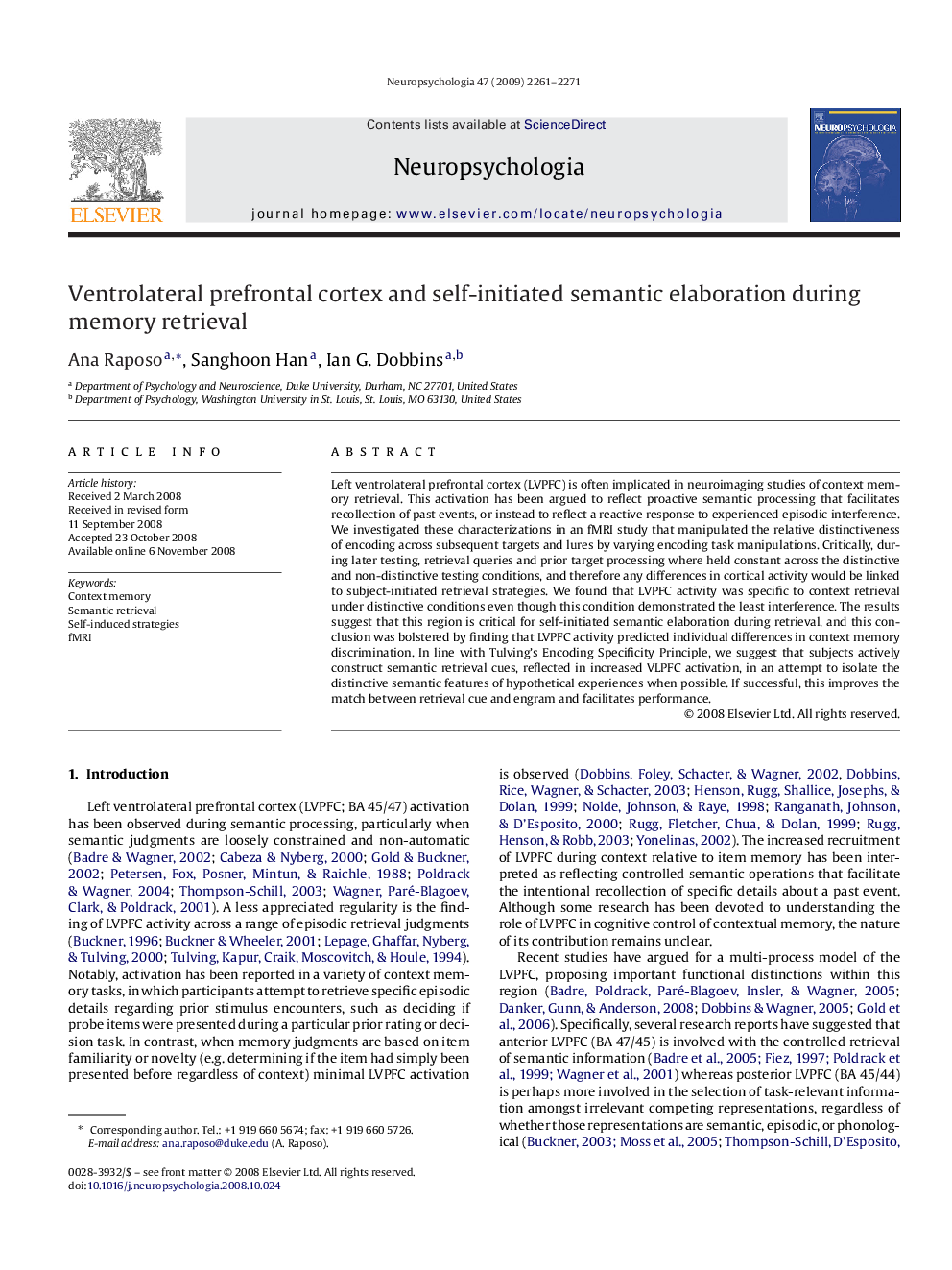| Article ID | Journal | Published Year | Pages | File Type |
|---|---|---|---|---|
| 945149 | Neuropsychologia | 2009 | 11 Pages |
Left ventrolateral prefrontal cortex (LVPFC) is often implicated in neuroimaging studies of context memory retrieval. This activation has been argued to reflect proactive semantic processing that facilitates recollection of past events, or instead to reflect a reactive response to experienced episodic interference. We investigated these characterizations in an fMRI study that manipulated the relative distinctiveness of encoding across subsequent targets and lures by varying encoding task manipulations. Critically, during later testing, retrieval queries and prior target processing where held constant across the distinctive and non-distinctive testing conditions, and therefore any differences in cortical activity would be linked to subject-initiated retrieval strategies. We found that LVPFC activity was specific to context retrieval under distinctive conditions even though this condition demonstrated the least interference. The results suggest that this region is critical for self-initiated semantic elaboration during retrieval, and this conclusion was bolstered by finding that LVPFC activity predicted individual differences in context memory discrimination. In line with Tulving's Encoding Specificity Principle, we suggest that subjects actively construct semantic retrieval cues, reflected in increased VLPFC activation, in an attempt to isolate the distinctive semantic features of hypothetical experiences when possible. If successful, this improves the match between retrieval cue and engram and facilitates performance.
